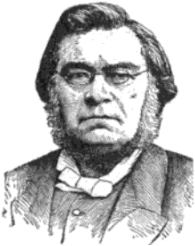A Quote by Richard Sibbes
It is good to divert our sorrow for other things to the root of all, which is sin. Let our grief run most in that channel, that as sin bred grief, so grief may consume sin.
Related Quotes
Another misconception is that if we truly loved someone, we will never finish with our grief, as if continued sorrow is a testimonial to our love. But true love does not need grief to support its truth. Love can last in a healthy and meaningful way, once our grief is dispelled. We can honor our dead more by the quality of our continued living than by our constantly remembering the past.
Every person in the world is by nature a slave to sin. The world, by nature, is held in sin's grip. What a shock to our complacency- that everything of us by nature belongs to sin. Our silences belong to sin, our omissions belong to sin, our talents belong to sin, our actions belong to sin. Every facet of our personalities belong to sin; it own us and dominates us. We are its servants.
Repentance out of mere fear is really sorrow for the consequences of sin, sorrow over the danger of sin — it bends the will away from sin, but the heart still clings. But repentance out of conviction over mercy is really sorrow over sin, sorrow over the grievousness of sin — it melts the heart away from sin. It makes the sin itself disgusting to us, so it loses its attractive power over us. We say, ‘this disgusting thing is an affront to the one who died for me. I’m continuing to stab him with it!’
Every one of our sinful actions has a suicidal power on the faculties that put that action forth. When you sin with the mind, that sin shrivels the rationality. When you sin with the heart or the emotions, that sin shrivels the emotions. When you sin with the will, that sin destroys and dissolves your willpower and your self-control. Sin is the suicidal action of the self against itself. Sin destroys freedom because sin is an enslaving power.
God has decided the rules of life, whereby you don't trespass on anybody else's rights, and sin is something that upsets the balance of things. There are three types of sin: sin against yourself; sin against other people; and sin against God. People often sin against themselves and others and misbehave with God, too.
Whether we experience it or not, grief accompanies all the major changes in our lives. When we realize that we have grieved before and recovered, we see that we may recover this time as well. It is more natural to recover than to halt in the tracks of grief forever. Our expectations, willingness and beliefs are all essential to our recovery from grief. It is right to expect to recover, no matter how great the loss. Recovery is the normal way .
When sin lets us alone we may let sin alone; but as sin is never less quiet than when it seems to be most quiet, and its waters are for the most part deep when they are still, so ought our contrivances against it to be vigorous at all times and in all conditions, even where there is least suspicion.






























